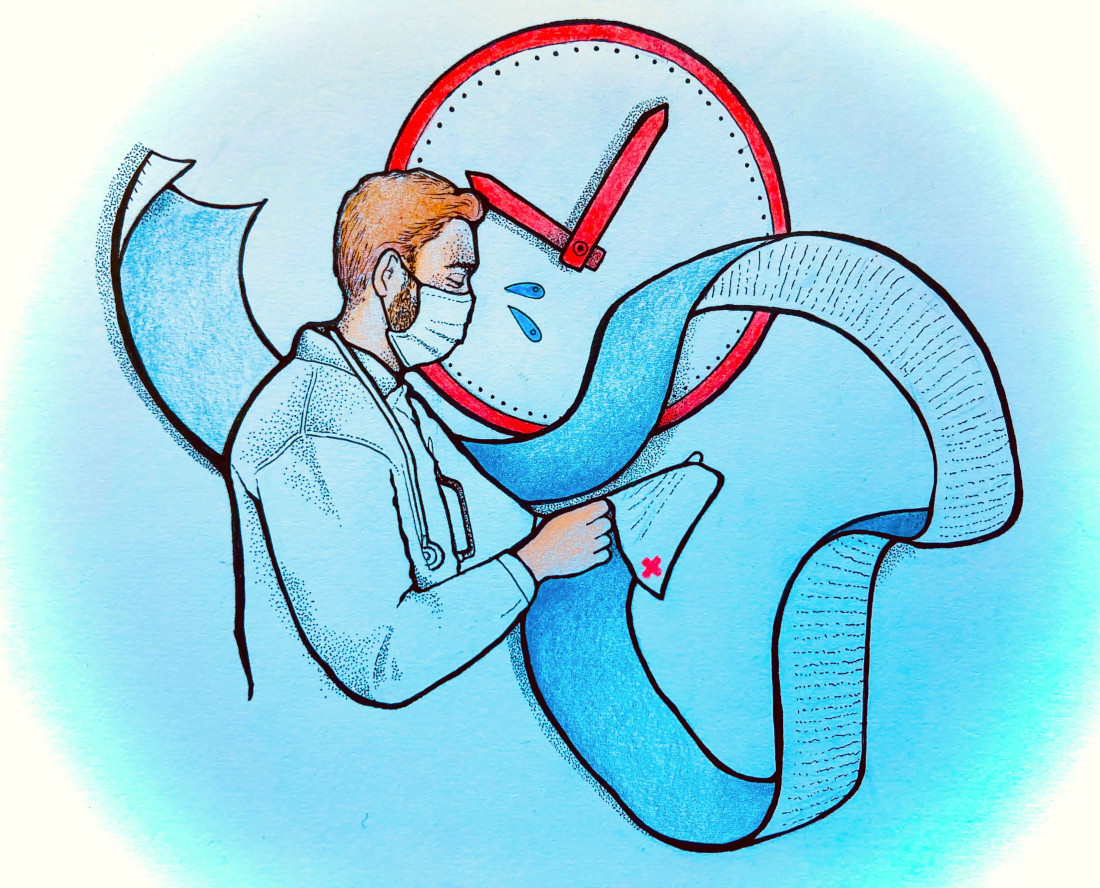Neverending waitlist
Dispatches from Manitoba’s surgery backlog
Illustration by Gabrielle Funk
The COVID-19 pandemic hit Manitoba’s healthcare system hard. After years of austerity cuts from the Pallister government, the provincial healthcare system was ill-prepared to deal with the increased strain brought on by the pandemic. Successive waves of infections and new variants, particularly Omicron, have only made things worse. While the Manitoba government announced the creation of a task force to address the surgery backlog in December of 2021, the number of people waiting has only continued to climb.
I am waiting for a gender confirmation surgery (GCS) as part of my gender transition. Getting to the point where I could apply for this surgery required being approved by two different assessments, each of which included their own wait times. Everything had gone smoothly. However, after consulting with my surgeon, the final step in the process before my surgery was scheduled, I received a phone call informing me that my procedure would be indefinitely postponed.
This particular surgery only takes about 30 minutes, and the surgeon is a specialist in this area, meaning he is likely not being called to work with COVID patients or other backlogged areas. This made me wonder why our healthcare system is being affected so broadly.
According to a Doctors Manitoba report, the three top barriers to addressing the backlog are “insufficient nursing resources and a lack of OR (operating room) time and recovery space.” In my circumstance, GCS is considered an elective procedure in Manitoba, despite multiple studies showing that access to GCS can be a major determining factor in reducing trans people’s risk of suicide and improving overall mental health. Because the surgery is considered elective, it will be ranked as a low priority as the province tries to clear the backlog.
It’s a terrible feeling to be ranked in order of priority against others who are also facing the distress of not knowing when they will get important surgeries. Having my medical needs deprioritized has definitely led to some moments of frustration and resentment. However, it has also taught me how interconnected our health is and that Manitoba desperately needs a strong public health system for all.
My surgery date is in limbo, and I am stuck with the uncertainty of not knowing how long the wait will be. I’ve looked into private clinics in the United States that have shorter wait times, but they come at a significant financial cost. I’ve read about DIY surgeries and underground clinics and hope this will never be a choice I seriously have to face.
While Manitoba Premier Heather Stefanson has clearly stated her belief that “the government can’t protect everybody out there,” the provincial government should acknowledge its own role in contributing to the current surgical backlog. Investing in our healthcare system and supporting healthcare workers will help us get through the current crisis and better prepare the province for the future.
Misha Falk is a writer, artist and independent researcher.
Published in Volume 76, Number 20 of The Uniter (March 10, 2022)






